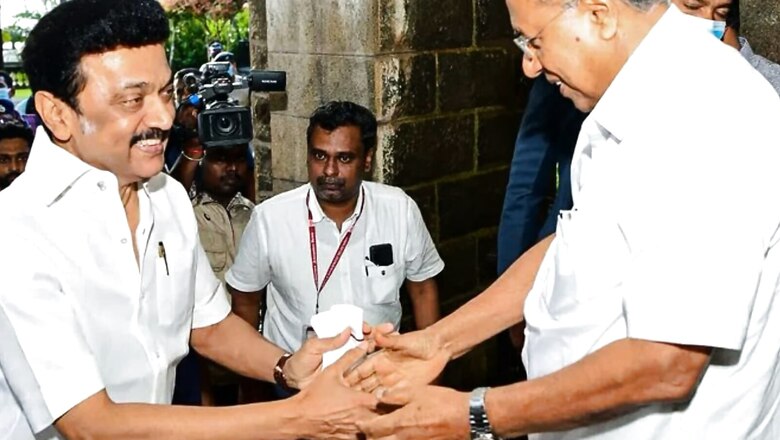Parl Panel Report on Hindi Use Ignites Language War in Kerala, TN. News18 Explains Fresh Controversy

views
The recommendation of a Parliamentary panel to make Hindi as the medium of instruction in all technical and non-technical higher educational institutions has snowballed into a controversy and received criticism from chief ministers from Kerala and Tamil Nadu.
While Tamil Nadu CM MK Stalin said that Hindi imposition is negating the diversity of India is happening at an alarming pace while his Kerala counterpart Pinarayi Vijayan sought Prime Minister Narendra Modi’s intervention into the matter.
What Are Recommendations of Parliamentary Panel?
Union Home Minister Amit Shah-led Committee of Parliament on Official Language has recommended that the medium of instruction in technical and non-technical higher education institutes such as IITs in Hindi-speaking states should be Hindi and in other parts of India their respective local languages. The Committee, which presented its report to President Droupadi Murmu last month, recommended that local languages should be given preference over English in all states.
The committee’s recommendations are in line with the new National Education Policy (NEP). The medium of instruction in IITs, central universities and Kendriya Vidyalayas in Hindi-speaking states should be Hindi and in other parts of India their respective local language, the panel recommended. All states and Union territories are divided in three groups (regions) on the basis of progressive usage of Hindi.
The panel said that officers and employees in the central government who deliberately don’t work in Hindi in Hindi-speaking states should be warned and if they don’t perform despite warning, it should be reflected in their Annual Performance Assessment Report (APAR).
Other recommendations include communication by central government offices, ministries or departments, such as letters, faxes, and emails, should take place in Hindi or local languages, simple and easy language should be used in official work and invitation letters, speeches, and moderation for any events organised by the central government should all be in Hindi or local languages.
Why Are Stalin, Vijayan Objecting to Panel Recommendations?
In a letter to PM Modi, Kerala CM Vijayan said Hindi cannot be imposed as the main language of instruction in the higher centres of learning as the country has many languages and pointed out that a single language cannot be termed as the country’s language.
He noted that the youth of the country have limited job opportunities in the government sector and it would not in the best interest of the society if any attempt to put a substantial section of them at a relative disadvantage is made.
Stalin also echoed similar concern and said that the proposals made in the 11th volume of the report of the Parliamentary Committee on Official Language are a “direct onslaught on India’s soul”. He said if it is implemented, the vast non-Hindi speaking population will be made second-class citizens in their own land.
PM Modi’s Push for Local Languages
PM Modi had earlier said that his government has given importance to every regional language in the National Education Policy (NEP).
During his visit to Tamil Nadu in May this year, PM Modi had said the Tamil language is eternal and the Tamil culture is global. “From Chennai to Canada, from Madurai to Malaysia, from Namakkal to New York and from Salem to South Africa, the occasions of Pongal and Puthandu are marked with great fervour.”
PM Modi had also underlined the need to “encourage the use of local languages in courts” since a large section of the country’s population “finds it difficult to understand the judicial process and rulings of the court”.
(With PTI inputs)
Read all the Latest Explainers News and Breaking News here
















Comments
0 comment